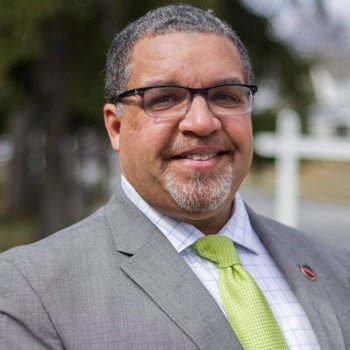Do you support the findings of the Commission on Innovation and Excellence in Education? Are you committed to funding associated reforms, and if so, how?
Stinnett: Over the past year the Commission on Innovation and Excellence in Education (Kirwan Commission) has been studying the research and hearing from experts about the best practices that lead to high educational attainment internationally and here in the United States. Maryland has long claimed to be #1 in Education while ignoring the growing achievement gaps and in-equities in educational opportunity within and among districts and populations of students. The recommendations presented by the Kirwan Commission provide a comprehensive framework with strategies that will move Maryland forward toward college and career readiness, but only if the implementation maintains a strong emphasis on equity. Investing in early childhood education, strengthening the quality of teachers and school leaders, providing coordinated wrap around services through community schools, and expanding CTE pathways are practical, high impact strategies that will take a major increase in dollars but will reflect the states priority and meet our constitutional requirements. The lock box on the casino dollars was first step in paying for Kirwan. Some of the initiatives may need to phased in while revenue strategies are developed. Moving dollars away from institutional incarceration in favor of more successful and affordable community based rehabilitation strategies can also increase our investment in education while continuing to balance the budget responsibly.
SHARE THIS ANSWER
Is Maryland’s transportation spending appropriately balanced between roads and transit? Does the state have the resources to meet its transportation needs? With the cancellation of the Red Line and the advent of BaltimoreLink, is the Baltimore region adequately served by transit?
Stinnett: No due to the continued focused on automobiles and roads as evidence by planned expansion of major interstates versus the cancellation of the Red Line. Yes, the state does have the resources that meet its transportation needs. For example, the expansion plans of I-295 and I-270. The Baltimore region is not adequately served by transit.
SHARE THIS ANSWER
Do you support the legalization of recreational marijuana?
Stinnett: My personal belief is no I do not support the legalization of recreational marijuana. However, recognizing the economic impact upon the state of Maryland and the work that has been done on behalf of Baltimore City as well as a large consensus of constituents who in fact do support the recreational use of marijuana for that reason I would support it.
SHARE THIS ANSWER
At a time when the federal government’s commitment to Chesapeake Bay restoration is questionable, what new steps should Maryland take to protect this resource?
Stinnett: Additional protection on secondary waterways and an increase focus on sewage runoff.
SHARE THIS ANSWER
What steps should Maryland take to ensure the broadest possible access to affordable health care?
Stinnett: Affordable health care should be a right and not an after-thought. The steps Maryland should take are to improve, support and protect the Affordable Care Act.
SHARE THIS ANSWER
What role should the state play in helping Baltimore address violent crime?
Stinnett: A good first step was the passing of the non-violent felony expungement bill which was a part of the overall crime bill legislation. In addition, increasing focus on the underlying social factors that drive crime and merge that with an increase focus on re-entry for returning citizens.
SHARE THIS ANSWER
How would you characterize Maryland’s business climate? What can the state do to foster the creation of more family-supporting jobs?
Stinnett: I believe Maryland is Open for Business. From the focus on increasing the overall small business participation from 10% to 15% and the increase compliance of MBE & VSBE participation. Ensure that businesses hire local, and that existing businesses have the resources they need to expand. Thriving small, minority, veteran and women-owned businesses will create community wealth and increase jobs and opportunities throughout the state.
SHARE THIS ANSWER
Do you support the creation of a non-partisan, independent body to draw legislative and congressional district maps after each census?
Stinnett: Yes I do support the creation of a non-partisan independent body.
SHARE THIS ANSWER
Does the Law Enforcement Officers Bill of Rights adequately balance protections for police and the public? Should it be changed, and if so, how?
Stinnett: No it does not balance the protection for police and the public. Yes it should be changed. It should be changed by shifting the focus back to the rights of the citizens. The police are treated more like citizens than the public is.
SHARE THIS ANSWER
What strategy would you adopt to address the opioid addiction and overdose crisis?
Stinnett: State and Federal legislation needs to be more comprehensive in addressing prescription, distribution, and abuse.
SHARE THIS ANSWER
What if anything should the state do to address income inequality?
Stinnett: The start would be to pass legislation on $15 per hour minimum wage as well as tax credits for low-income wage earners.
SHARE THIS ANSWER
Do the state’s Public Information Act and open meetings laws adequately ensure Marylanders’ ability to exercise oversight of the government?
Stinnett: The laws are adequate; however, adherence to the laws can be an issue.
SHARE THIS ANSWER
